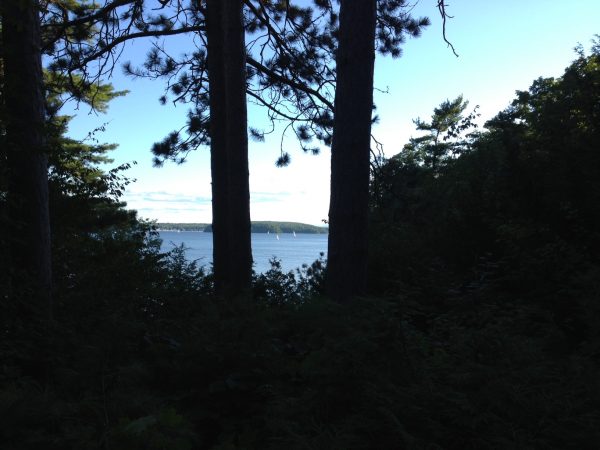This is part of the Bittersweet Book Launch case study, where Dan Blank and Miranda Beverly-Whittemore share the yearlong process of launching her novel. You can view all posts here.
by Miranda Beverly-Whittemore
One of the challenges of fictionalizing something from your life is being honest (with yourself and others) about what is made up and what is real. I began thinking about this when I was writing and publishing The Effects of Light (which was based on my experience of being photographed as a fine arts model, although the plot of what happens in that book does not reflect what happened to me).
I’ve discovered about myself that when I’m writing something substantial, I’m trying to explore a deeper question which a specific experience awakened in me. In the case of The Effects of Light, that question was “would I really believe in the innate goodness of fine arts photographs if critics’ worst possible fears about those pictures came true, namely, a child died because of her involvement in them?” The seeds of Set Me Free sprouted from my life experience of spending time on a reservation in Montana as a girl, as well as in my mother-in-law talking about her time as a political radical in 1970s New York. And Bittersweet was born from my family’s home up on Lake Champlain in Vermont, as well as the isolation I felt coming here as a child.
Now, I hate the idea of people being angry at me: at the grocery store, in my house, and, most especially, because of my books. But beyond that, I write with a pleasure principle in mind. I don’t want my books to hurt people: not myself, not my readers, and not the people I care about, even though I know I can only do so much in that regard. That doesn’t mean I don’t want to provoke or to make folks question their beliefs—I believe great writing should do that. But I also believe in being careful about what I say about what I publish—owning up to what, in the book is my own and claiming responsibility for that.
I’ve been thinking about all this recently in terms of Bittersweet. The novel is about a family who has owned vacation property in a strip around Lake Champlain for over a century. That’s an accurate representation of the community where my grandparents built their house in in the sixties; my family were the first “outsiders” to build on land owned by a storied Vermont clan. In my novel, the main character, Mabel, who is a “nobody,” feels her outsider status profoundly—she feels isolated, lonely, afraid. These were emotions I often experienced when I came here as a little girl; I spent hours longing to be included, comparing myself to the beautiful blonde children who summered here, knowing I’d never truly be one of them. The land in my book is nearly identical to the land I’ve grown up on, from the pines and maples, to the wood thrushes and great blue herons, to the thunderstorms that move in over the water.

But that’s pretty much where the comparisons stop. Because the family I’ve invented, the Winslows, are really bad people. Like, really really REALLY bad people. And the family I’ve grown up knowing are really good people. Really really REALLY good people. People who don’t know (as far as I know) that I’ve written a novel about this place we all love, and peopled it with a selfish, corrupt clan.
I also want to own up to the fact that the isolation I felt when I came here was mainly to do with what was going on within my own family when I was a girl: the culture shock of returning to the States from a small west African village, the fact that this place was very much my grandparents’ home, which meant I never really felt, until my twenties, that I could call it my own.
Since coming up to the lake this summer, I’ve been aware of the fact that I will need to tell the lovely people who live here about the book I’ve written, the book that will come out next summer, and be thoughtful about how to frame the story of how that book came to be. I don’t want to be euphemistic or lie, but I also want to upfront with the folks I know up here that although I’ve used the place we love as fodder, I haven’t used them.
If you’re a writer, how have you dealt with/ thought about these issues in your own work?
